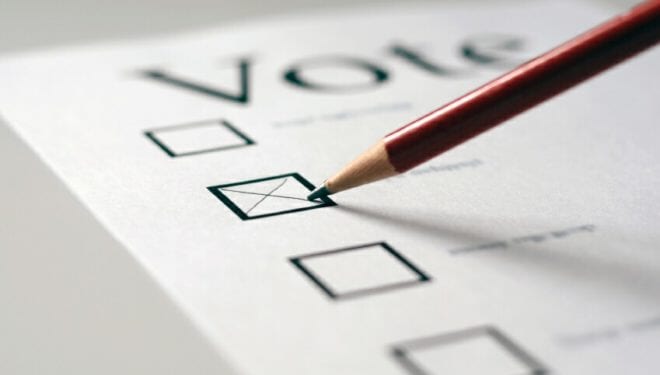Last week, Governor Janet Mills came out against Question 2, the so-called “Red Flag” law referendum on this November’s ballot. In public statements and op-eds, the governor argued that the measure was poorly constructed, potentially confusing, and burdensome on Maine families. On these points, she is absolutely right.
But while Governor Mills urges a “No” vote in the name of administrative caution and preserving her administration’s yellow flag framework, Maine Policy Institute believes Question 2 is wrong for Maine due to more fundamental reasons. We oppose Question 2 because it lacks the procedural safeguards, constitutional clarity, and respect for individual rights that any firearm-related legislation must meet in a free society.
It is not enough for a new policy to sound sensible or mirror trends in other states. Good intentions don’t override the need for clear process, institutional accountability, and personal liberty. Mills’ opposition is grounded in managerial concerns. Ours is rooted in recent Supreme Court rulings, constitutional principles, and individual rights.
The Governor’s Critique: Sensible but Surface-Level
Governor Mills has made a series of arguments against the referendum, most recently in her op-ed published by Bangor Daily News, Seacoast Online, and the Portland Press Herald. In short, she argues that:
- The measure could undermine or conflict with Maine’s existing “yellow flag” law, which requires law enforcement to take someone into protective custody and obtain a mental health evaluation before firearms can be removed.
- The new process would place undue burden on private citizens, requiring family members to initiate legal action against loved ones in times of crisis.
- The referendum would duplicate existing tools rather than strengthening or clarifying them.
- Implementation would be confusing and potentially harmful, leading to legal uncertainty for courts, police, and petitioners alike.
Each of these concerns has merit. But they fail to capture the deeper problems with Question 2, problems not just of structure or clarity, but of constitutionality and legitimacy.
The Real Problem: Question 2 Endangers Liberty
Maine Policy Institute believes Question 2 is fatally flawed because it:
- Sidesteps due process. By allowing civilians to initiate firearm removals without the same evidentiary standards, oversight, or institutional checks required under the yellow flag law, the referendum invites arbitrary and possibly vindictive enforcement.
- Creates conflicting legal regimes. A dual-track process, one initiated by law enforcement under statutory standards, the other by private citizens under looser ones, is a recipe for inconsistency and legal challenge. The referendum doesn’t replace the yellow flag law, it simply establishes an alternative red flag law process.
- Assumes institutional competence that doesn’t exist. The idea that Maine’s courts are prepared to handle a new volume of ex parte firearm seizure petitions is naïve. As Mills herself noted, the Legislature never debated this proposal, never modeled its costs, and never weighed the long-term impact on the judicial system, which is already struggling with the number of cases before it. The yellow flag law system requires police and psychologists to vet claims before they reach a courtroom.
- Conflates action with effectiveness. The referendum is a symbolic gesture masquerading as reform. It will not address the gaps that allowed the Lewiston tragedy to happen. It will merely give politicians a checkbox to point to while leaving Mainers’ rights at risk.
Where We Agree with Gov. Mills
To her credit, Governor Mills has correctly diagnosed many flaws in the proposal. She is right to worry that:
- It will undermine trust in a process that is already confusing to the average citizen.
- It burdens families by asking them to file legal actions against relatives in moments of extreme emotional distress.
- It duplicates existing structures without improving them.
- It increases the risk of abuse by those seeking to harass others and subvert their constitutional rights.
We welcome her recognition that legislation as sensitive as this demands careful scrutiny. But Mills’ solution, rejecting Question 2 in favor of strengthening the yellow flag law, remains too reliant on the idea that bureaucrats and institutions will protect both safety and rights. That’s a gamble Maine doesn’t need to take.
Final Word: Question 2 is the Wrong Choice for Maine
Governor Mills is right to oppose Question 2, but for the wrong reasons. Her objections focus on confusion and conflict with the yellow flag law. Ours go further: Question 2 is a serious threat to due process, property rights, self defense, and the presumption of innocence.
Maine voters should reject this referendum not because it is “premature” or “impractical,” but because it is wrong in principle. Policymakers should improve what exists, not expand the state’s power to seize firearms based on ambiguous accusations by private parties. In protecting public safety, we must never forget to balance our policy goals with individual rights enshrined in both the Maine and United States Constitutions, including the right to bear arms.










